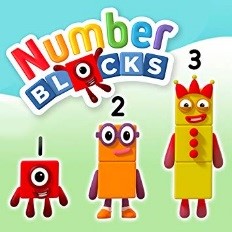Mathematics

The new National Curriculum
The new National Curriculum is written with three core aims:
- Fluency
- Reasoning
- Problem Solving.
Children need to develop a mastery of mathematics rather than achieving the next objective year on year. The curriculum is written so that children can strengthen deeper understanding and apply knowledge into different contexts within the field of mathematics
Depth of Mathematical Learning
In order to understand the way children are now being taught it might be helpful to think of this diving picture.
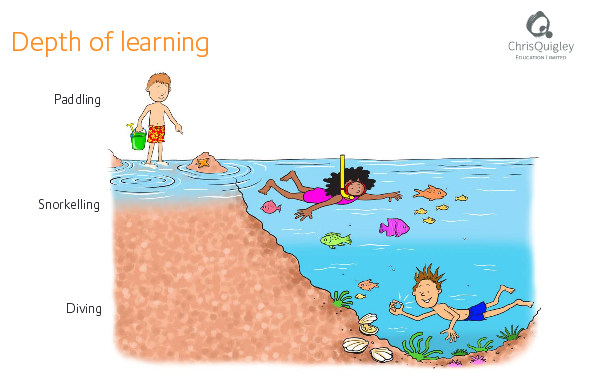
The picture represents depths of learning:
Working Towards the Expected Standard (Paddling) – The children gain the first level of understanding and with support and/or structure, are able to achieve the learning objective.
Working At the Expected Standard (Snorkelling) – Children’s understanding deepens so that with prompts or the use of success criteria, the children are able to achieve the learning objective with greater independence and deeper understanding
Working at Greater Depth within the Expected Standard (Diving) – Children show a deep understanding and are able to apply their knowledge independently, in a variety of different contexts.
Fluency
Fluency is made up of three main parts: efficiency, accuracy and flexibility.
To increase fluency children should become proficient at:
- Learning times table facts,
- Division facts,
- Doubles and halves,
- Number bonds to 10, 20, 100 and 1000
- Addition and Subtraction of two digit numbers mentally
There are many other numbers facts which help but it is vital that children learn how to apply these facts to other problems within mathematics.
Reasoning
Maths Characters
Meet the Duke Street Maths Characters
Maths Characters

Walter Why

Holly How
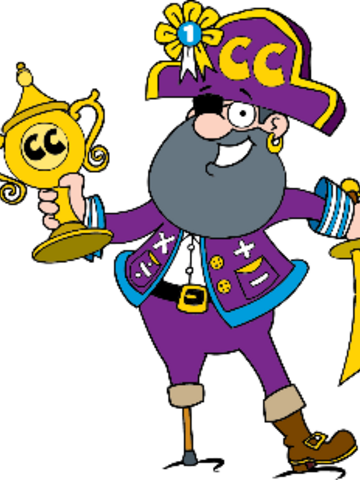
Captain Conjecture
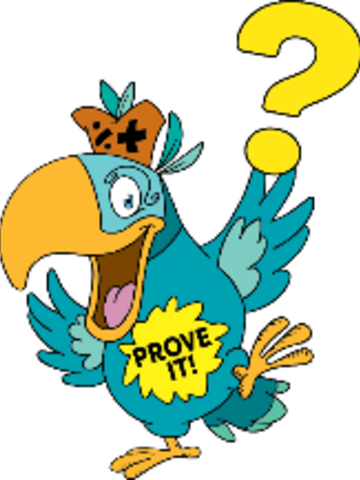
Polly Prove it
Our Maths Characters have been designed by the children at Duke Street following a whole school competition. They have been created to promote Maths reasoning within our Maths lessons. Our Maths characters really make us think about what we are learning and the different methods we chose to solve our maths.
To be able to reason children should be able to conjecture and offer a proof and explanation of their ideas. They should be able to form links between mathematical ideas and be able to apply and test these.
Problem Solving
Problem solving tasks are rich tasks. This means they are problems which have multiple answers or different strategies to solve them. They are not a simple closed question. They may have several steps to complete in order to find the answer. They may use several different elements of mathematics and they are suitable for any ability level.
In addition to our ongoing problem solving that runs throughout our daily lessons, we also have a designated problem solving week every term. Each term we focus on a different aspect of problem solving and teach the key skills and strategies needed to solve them.
Early Bird Maths (8.45 – 8.55am)
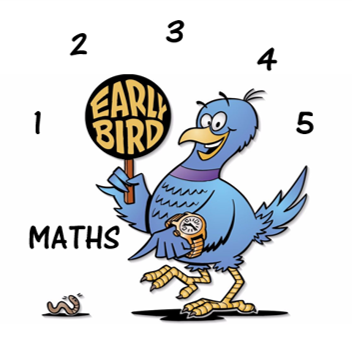
Early Bird Maths will be completed by all children from Years 1-6 each day when they arrive at school. It is focused on improving the children’s mental arithmetic and fluency. Those children who arrive at school for 8.45am will have the advantage of having ten minutes to complete their Early Bird Maths work. The aim is for children to work hard on improving their own performance during early bird sessions each week. This regular practice ensures the children are confident and fluent in their basic maths skills. They will then find tackling more challenging aspects of mathematics such as reasoning and problem solving that bit easier as they will have a range of skills to draw upon. Please support your child to arrive at school promptly so they don’t miss out. A weekly certificate and prize will be awarded to an Early Bird Guru in each class.
Times Table Rock Stars (TTRS)
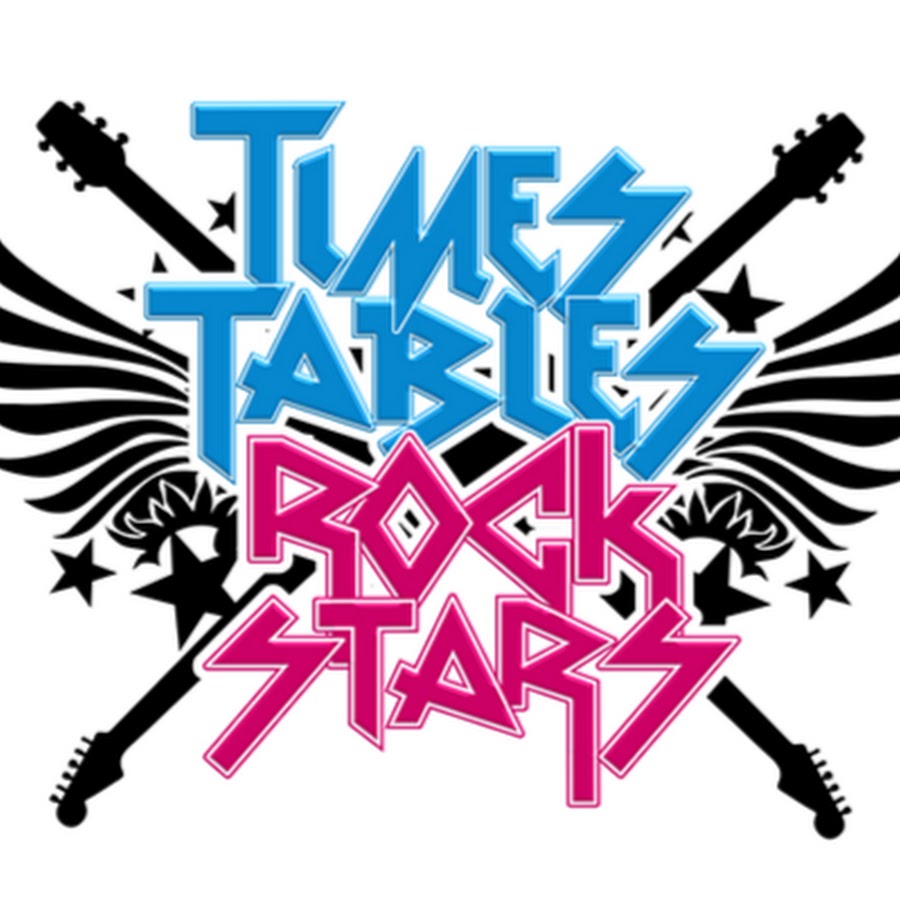
All children in Year 2-6 should have received a personal login and password for Times Table Rock Stars. Times tables are really important because they form the foundation for knowledge in so many different aspects of mathematics. Solid knowledge of tables and instant recall of times table facts supports children in their learning across the key stages and helps them to make better progress. TTRS is a fun and engaging way for children to learn their tables facts up to 12x12. The more the children play, the more facts they learn, the more coins they earn and the quicker they become at answering questions. The faster they get the better their Rock Status becomes. Children work their way through the ranks from a Wannabe (answering questions in over 10 seconds) to a Rock Hero in less than a second. This year we will be continuing to award weekly certificates to the top three pupils who earn the most coins each week. In addition to this, new bronze, silver and gold badges will be awarded to those children who reach the top three rock statuses. Please encourage your children to engage with this at home. Regular practice is crucial for success. A leaflet for parents containing more information is available below.
TTRS
‘Y4 Multiplication Tables Check - Parent guide’
Please click on the link below for your parental guide to Year 4 Multiplications.
Numbots

All children in Reception to Year 2 have received a personal login and password for Numbots. Numbots is an interactive game which is focused on building children’s understanding, recall and speed of working with numbers to 20. The game involves the children completing counting, addition and subtraction activities which progress through different levels. As the game progresses and the children work their way through the levels, they are able to help the game’s main character ‘Rusty’ change from Rust to Diamond. They also earn coins that they can spend in the ‘Custom Shack’, buying items for their avatar.
Numbots
Numberblocks
We love the BBC series Numberblocks. In reception, we do a lot of our number teaching alongside their episodes and the support materials created by the National Centre for Excellence in the Teaching of Mathematics (NCETM).
Superhero and Football Maths Leagues
Throughout the school, children learn key addition and tables facts which they practice daily to increase their fluency. In KS1 the theme of the tests is ‘The Superheroes League’ and in KS2 it is ‘Football League’. Every week a maths key facts test takes place on the key facts the children are learning. The children are encouraged to improve their previous score and progress through the different divisions of the league. Certificates are awarded when the children are secure.
Maths Ambassadors
.jpg)
We currently have a group Maths Ambassadors who do a fabulous job around school promoting Mathematics. Some of their responsibilities are:
- Leading whole school assemblies
- Running weekly Maths clubs
- Classroom visits to support Maths in Reception to Y2
- Organising challenges for the school
- Planning whole school Maths themed days
